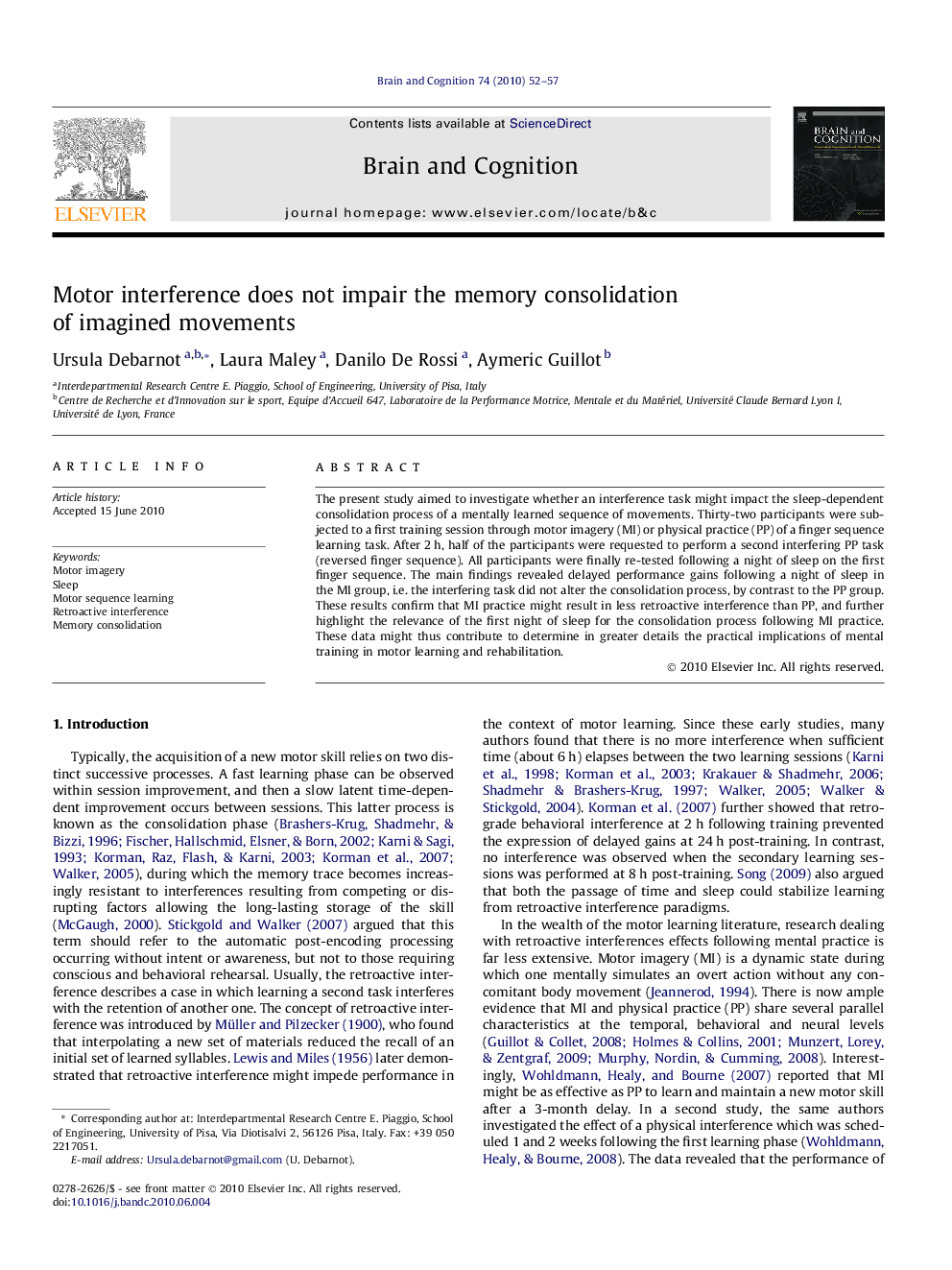| Article ID | Journal | Published Year | Pages | File Type |
|---|---|---|---|---|
| 924280 | Brain and Cognition | 2010 | 6 Pages |
The present study aimed to investigate whether an interference task might impact the sleep-dependent consolidation process of a mentally learned sequence of movements. Thirty-two participants were subjected to a first training session through motor imagery (MI) or physical practice (PP) of a finger sequence learning task. After 2 h, half of the participants were requested to perform a second interfering PP task (reversed finger sequence). All participants were finally re-tested following a night of sleep on the first finger sequence. The main findings revealed delayed performance gains following a night of sleep in the MI group, i.e. the interfering task did not alter the consolidation process, by contrast to the PP group. These results confirm that MI practice might result in less retroactive interference than PP, and further highlight the relevance of the first night of sleep for the consolidation process following MI practice. These data might thus contribute to determine in greater details the practical implications of mental training in motor learning and rehabilitation.
